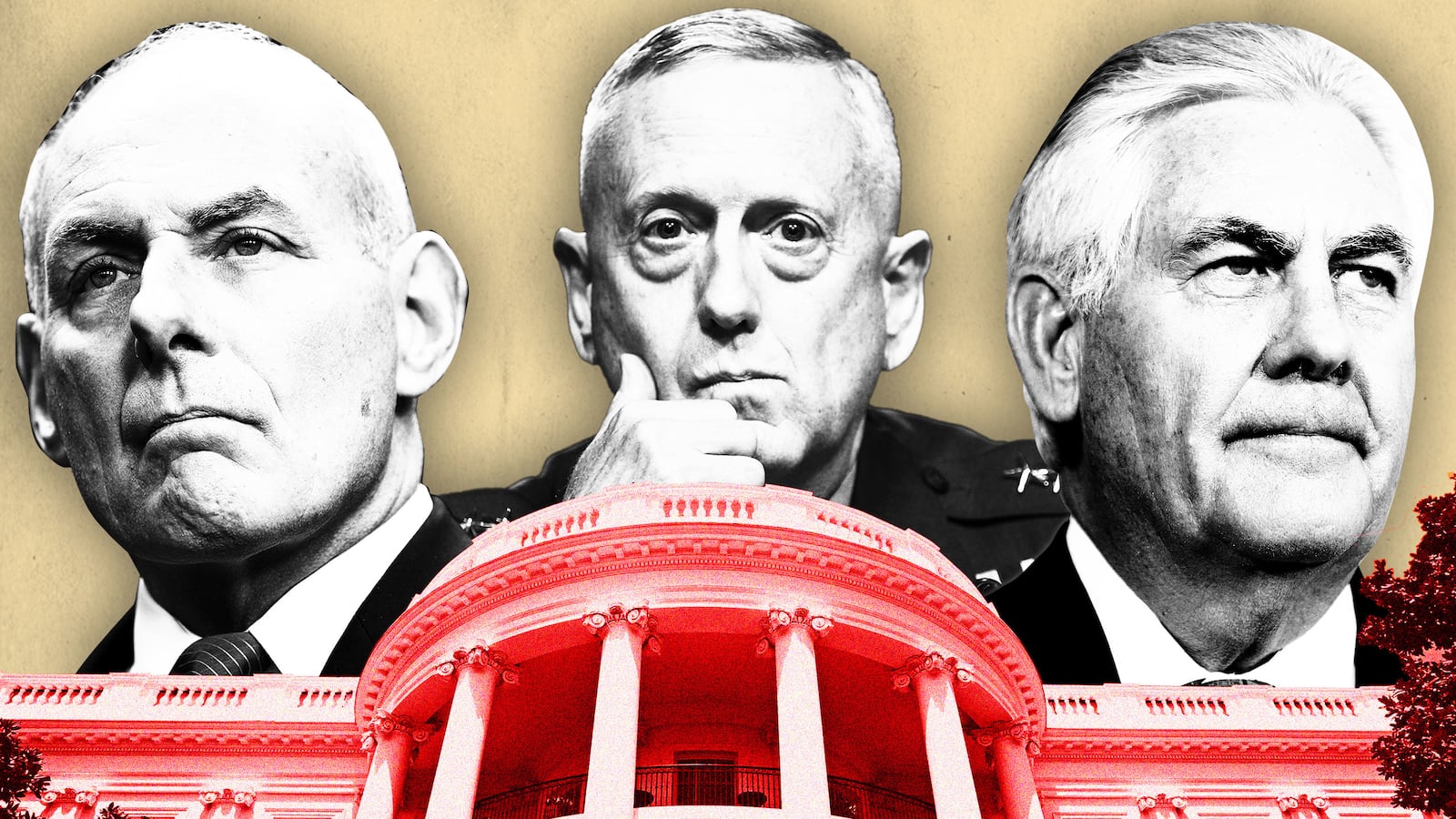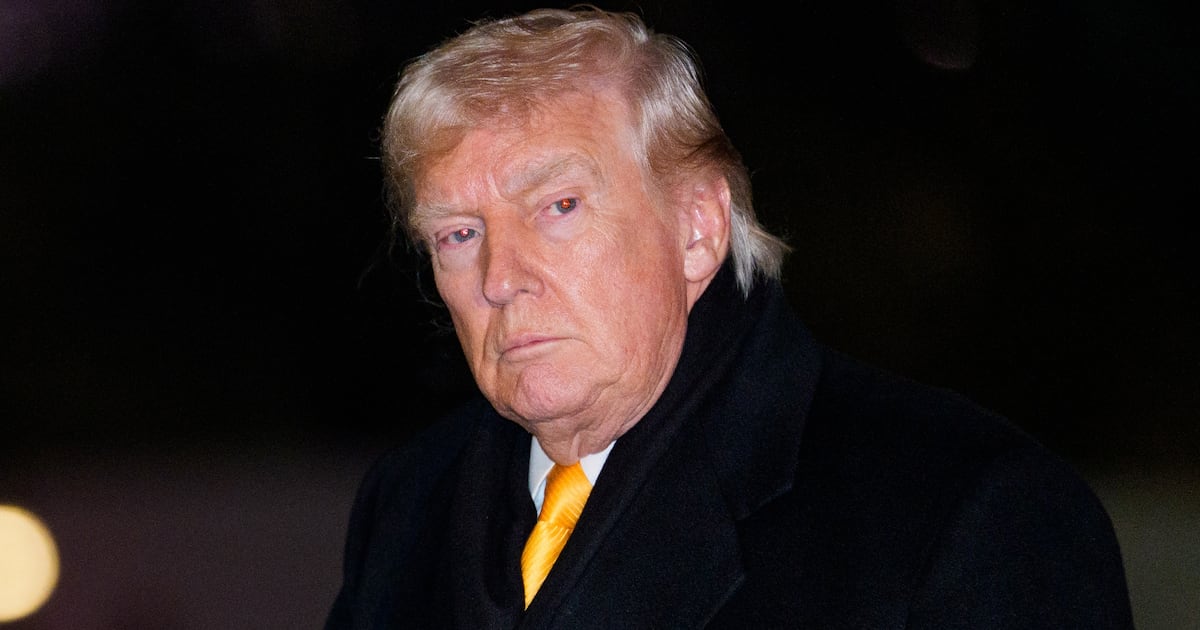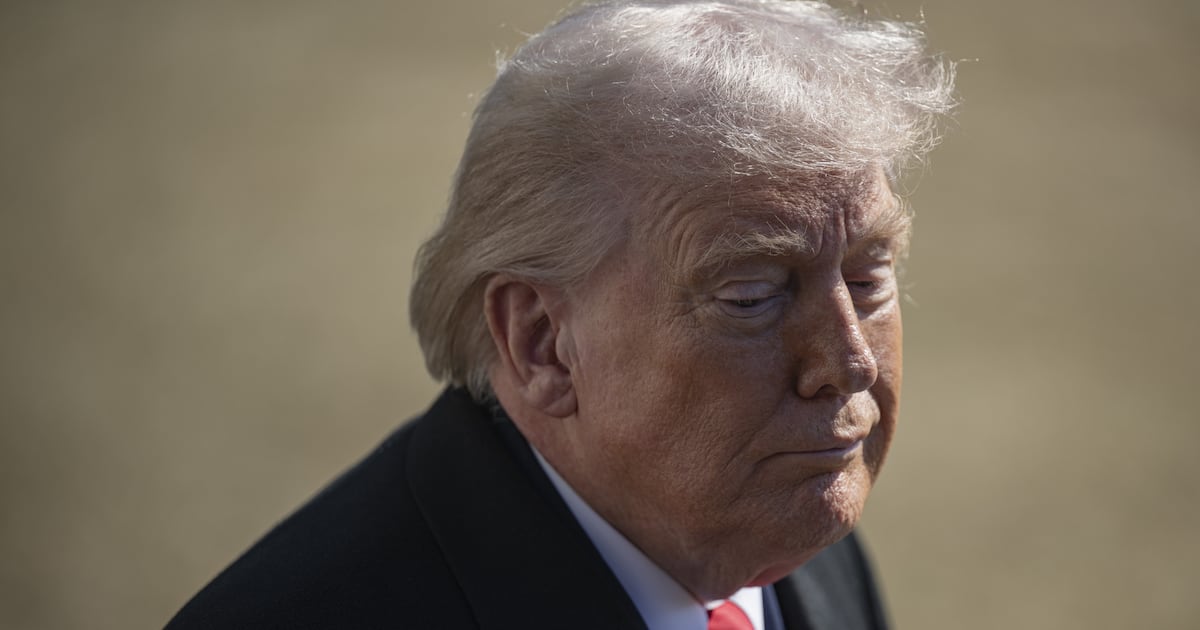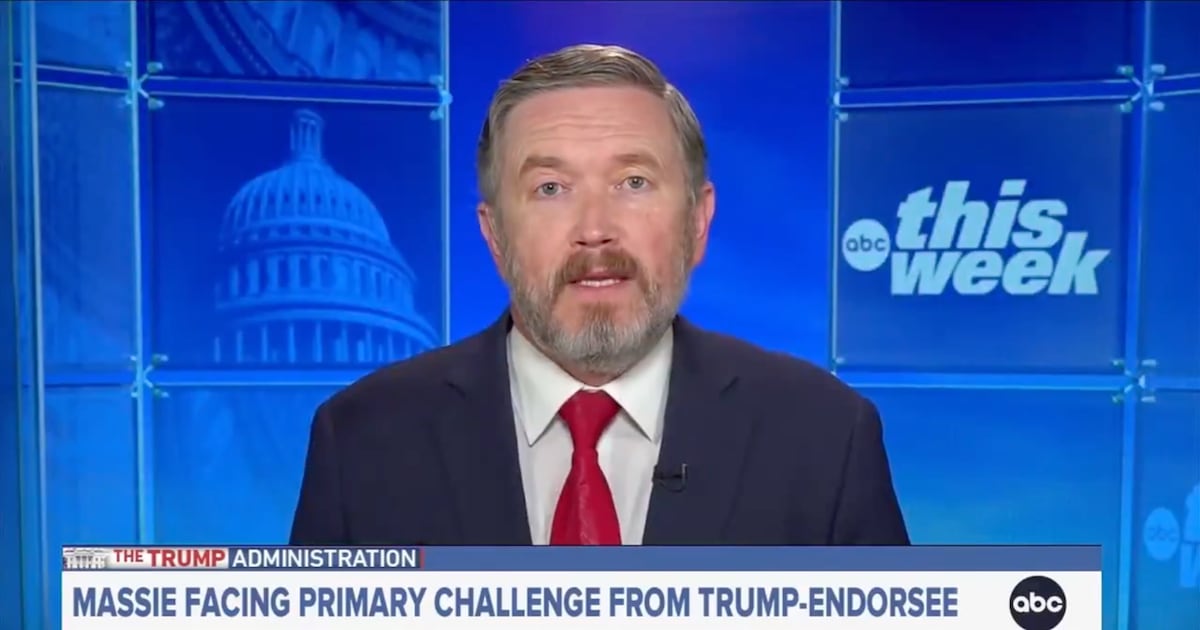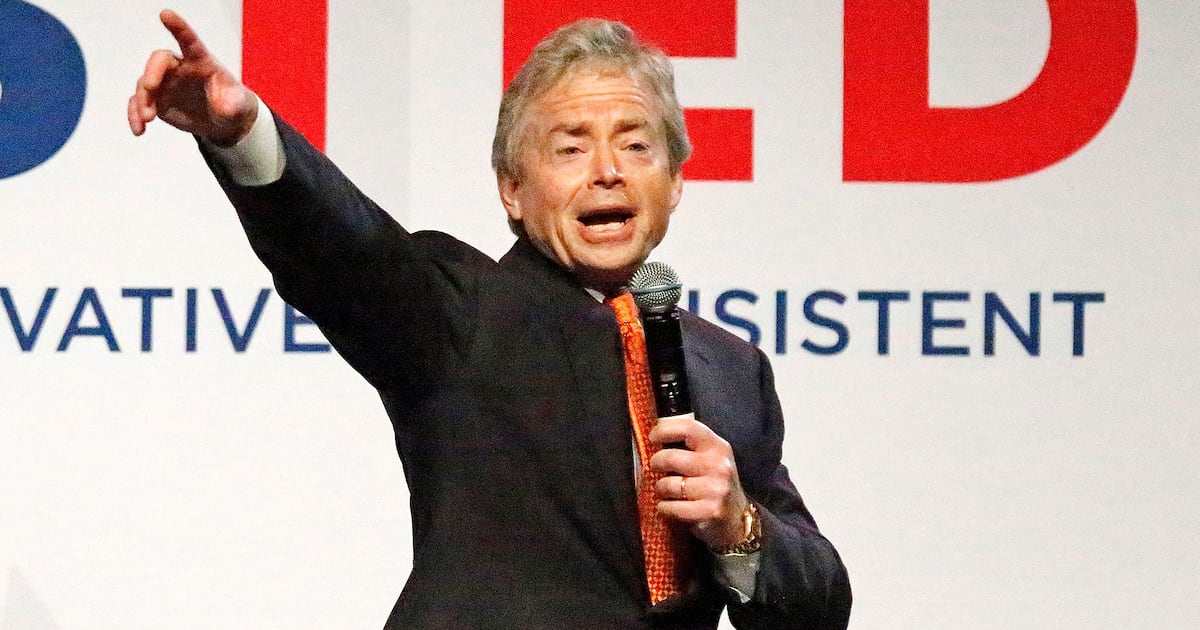There’s a new band in town that’s guiding national security by quietly tutoring the most powerful man in America. Never-Trump Republicans who’d been apprehensive about President Donald Trump are celebrating the trio’s influence, calling Secretary of Defense Jim Mattis, Secretary of State Rex Tillerson, and Homeland Secretary John Kelly the “Axis of Adults.”
Through near daily contact with the trio, as well as Trump’s National Security Adviser Lt. Gen. H.R. McMaster and CIA director Mike Pompeo, Trump’s world view appears to be morphing more closely to match hawkish conservatives of the Bush administration.
They point to the men’s influence in the Tomahawk strike in Syria—in contrast to Trump’s isolationist slogans on the campaign trail; the outreach to China, compared to Trump’s threats to launch a trade war; a possible escalation of the war in Afghanistan; and Trump’s hardening stance toward Russia.
None of these key national security chiefs were part of the Trump campaign, or movement. They are seen by those who work most closely with them as loyal to the office of the president but still getting to know the man himself, said a senior administration official, speaking anonymously to describe the interactions just 11 weeks into the fledgling presidency.
“They realize this is a tumultuous White House, and they are serving as a leveling influence over fractious personalities… responsibly protecting the country from enemies both foreign and domestic,” the official said, lumping Trump campaign veterans like embattled advisor Steve Bannon into the “domestic” enemy camp. Bannon’s removal from the official NSC roster by H.R. McMaster is seen as a sign the “adults” are winning.
“H.R. has been a steadying force,” a second senior administration official said. A third senior administration official described last week how there is now an efficient process to debate ideas, put them before the president and come to fairly swift decisions—a contrast to the chaos NSC staffers described in the early weeks under now-resigned National Security Advisor Mike Flynn.
Last week’s Marist poll shows the majority of Americans still disapprove of how Trump is handling foreign policy, but there’s a slight shift upward from the last time Marist measured. Trump’s behind-closed-doors, boardroom style of decision-making may not be winning over the bulk of the American people, who feel blindsided by the recent national security moves that come with little warning before, and scant explanation afterward. And even those supportive of the Trump administration’s recent actions aren’t sure there’s any sort of coherent policy behind them yet.
But many former staffers for President George W. Bush told The Daily Beast that they are now putting their names into the ring to work in one of the “safe zones” with Mattis, Tillerson or Kelly, according to three former Bush staffers who now all work for the administration or are interviewing for jobs there. (And it was actually a former Obama administration staffer, Colin Kahl, who was one of the first to publicly use the phrase “Axis of Adults” to describe the three national security chiefs.)
Mattis earned their trust during his military career as a Marine General who unsuccessfully pushed the Obama administration to challenge Iran, combined with his scholarship on civil-military relations. Kelly, also a retired Marine general, commanded in Iraq, ran the U.S. military’s Southern Command, and bears the heartbreaking distinction of having lost a son in combat. Tillerson has never served in combat, but has done high-stakes business in many conflict zones, and eschews the limelight as much as his counterparts.
“He’s consulting all these guys and they have a high degree of comfort among themselves,” said a senior administration official. “There is the band of military brothers—Mattis, Kelly and McMaster. Tillerson and [UN Ambassador] Nikki Haley are not military but play a big role.”
“What’s making this work for the president is the mix—not one or the other,” the official said, speaking anonymously to describe the president’s decision process.
All the administration officials interviewed say the key discussions happen not at the NSC, but at fairly regular informal dinners with Tillerson and the others.
“The president deserves credit for being incredibly flexible and listening,” said Michael Waltz, a former senior advisor to Vice President Dick Cheney. “It’s his style—in The Art of the Deal, you see even in the late 80s he was on the phone and having dinners all the time. That’s how he learned,” Waltz said.
Trump had two dinners with Mattis only last week, a senior U.S. official confirmed, speaking anonymously to describe the president’s schedule.
“[President Barack] Obama was cerebral and consumed lots of written information and liked to have highly structured meetings,” said Richard Fontaine, president of the Center for a New American Security and a former adviser to Republican Sen. John McCain. ”That clearly is not Donald Trump, who is more freewheeling and informal and responds with his gut.”
The chemistry that’s developed amongst Trump’s advisors is also key to their leveling influence on the president. Mattis and Tillerson have a standing breakfast once a week, where they share views to be able to present a more united front on defense and foreign policy at key White House meetings, two of the senior administration officials said.
Their low-key approach is materializing in the form of a blunt bat to rhetorical and incendiary pitches from North Korea, such as the Mattis’ weekend comment on Pyongyang’s failed medium-range missile launch: “The president and his military team are aware of North Korea’s most recent unsuccessful missile launch. The president has no further comment.”
That was matched by Tillerson’s 23-word comment about an earlier North Korean test: “North Korea launched yet another intermediate range ballistic missile. The United States has spoken enough about North Korea. We have no further comment.”
And Mattis tamped down swirling anti-Russian sentiment last week after Moscow defended the Syrian regime’s suspected sarin gas attack last week and cut off military deconfliction communications with the U.S.-led coalition. “It will not spiral out of control,” Mattis insisted in a sober press conference, adding that he’s confident Russians will “act in their own best interests,” which means stand down on the panic.
Of the relationship between the two men, a Pentagon spokesman would only confirm they have a weekly breakfast, and State Department spokesman R.C. Hammond would only say that, “the Secretary is in daily contact with his Cabinet and NSC colleagues, and works to give the President information and options.”
U.N Ambassador Nikki Haley doesn’t work as closely with the group because of the simple fact of geography, being based at the U.N. in New York. But she told CNN that she talks regularly with the president, and one of the senior administration officials said her views are melded into the developing strategies for ISIS, Russia and North Korea.
Haley and Lt. Gen. McMaster are quickly becoming the face of the president’s national security strategy, praised for handling high-stakes television interviews, while Mattis, Kelly and Tillerson only make rare appearances.
McMaster has also won kudos internally for leaving his ego out of NSC debates, running efficient meetings that end with recommendations for the president (something that past NSC insiders say didn’t always happen in the last administration) and then translating the outcome of those meetings to Trump, even bringing his own NSC experts to the Oval Office for the president to question.
There’s one potential downside for the Bush-era influx the “axis of adults” is encouraging. One of the senior administration officials said as more Bush veterans join Team Trump, they are reconnecting with each other and the old relationships are facilitating getting things done, and they seldom see eye-to-eye with the less experienced true believers from the campaign. That’s adding to the friction, and the delays in hiring to fill a couple thousand still-empty posts. Hiring is still hamstrung by a “loyalty test,” which puts a black mark against any job applicant who once expressed #NeverTrump views.
“For a lot of people who put their name on the first #NeverTrump list, they did it on the basis of what they heard on the campaign trail and to be fair, I can see why they’d say that,” said former Trump transition official James Carafano of the Heritage Foundation. “Those of us briefing Trump saw more depth, maturity and responsibility there.”
“If you look at how he’s used his leadership team, they don’t look half bad, and people are a lot less risk averse in signing on now,” said Carafano, whose job was to line up potential hires for the new administration.
The so-called “adults” have also had some misfires. Kelly’s comments endorsing Trump’s tweeted accusations that the Obama administration wire-tapped him—and floating the idea of splitting up immigrant families—have drawn heavy criticism.
Tillerson is criticized for not engaging enough with his department’s experienced diplomats, engaging with the press as little as possible, and not objecting strongly enough to Trump’s proposed slashing of the State Department and USAID budgets.
And as for an overall defense strategy, it’s not yet clear that there is one. The Tomahawk strike in Syria seems to be a one-off, to signal Russia that it better rein its client state into line. The massive bomb dropped in Afghanistan seems to be just one more salvo in a never-ending war with no end. And Mattis said they are “fleshing out” an ISIS strategy, but early reports are that it’s much like the Obama administration’s longterm plan: manage the chaos with the minimum of U.S. troops, but don’t expect to intervene too heavily or change much.
Still foreign policy watchers say the direction they are going is largely positive, with the “axis” drawing praise from moderate national security watchers as well as the more conservative ranks.
“After more than two months of relative chaos and uncertainty surrounding U.S. foreign policy…when a lot of people have been questioning the administration’s basic competence, this looked like governing at its finest by a group of highly experienced professionals,” said former Bush official John Hannah, now at the Foundation for Defense of Democracies. He said the personalities involved “start from the basic premise that U.S. leadership, realistically applied, remains an essential bulwark for maintaining a minimally acceptable degree of international order and security.”
“All three understand very well civilian control of the military, among other core principles of our democracy, and all three are very serious men with their egos in check and no fascination with the maximization of personal power,” said Michael O’Hanlon of the Brookings Institution.
Some Republicans are still waiting to see what happens next before applying for jobs, stung by Trump’s tweet storms, the most recent seeming to goad North Korea into direct conflict.
McMaster, Haley, Pompeo, and the “Axis” are still in reactive mode when it comes to the president’s tweets, which often complicate their development of policy, such as Trump’s taunting tweets that “North Korea is looking for trouble.”
Their staff deeply wish they would have a heart-to-heart with POTUS and at least coordinate the messages.
“Even if you have adult supervision above you at the cabinet secretary level, is that enough? To work really hard on something, and then have the president roll in with a tweet, it doesn’t matter how much Mattis protects you, because the tweet just undercut your negotiations,” said Mieke Eoyang, a vice president at the Democratic think tank Third Way, of conversations she has had with would-be Trump staffers. “I have a lot of Republican friends really wrestling with this.”

